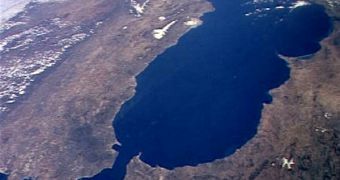Various companies and governments have gotten it into their heads that they need to tap into the massive deep-sea deposits of natural gas that exist in the Levant Sea, a portion of the Mediterranean.
The developers want to exploit these fields regardless of legally-binding restrictions placed on deep-sea exploitations. They also have no concern for the irreversible damage that they will be causing on marine biodiversity that thrives in the area.
According to the World Wildlife Fund for Nature (WWF), the entire area is teeming with life, featuring an ecosystem that is tremendously special and unique. Damaging it would mean the end of numerous species that depend on it for their very existence.
But that is of little interest to developers, who only want to tap into the Leviathan gas field. The location is some 135 kilometers off the coast of Israel, and it represents the largest, most important deep-water gas reserve find in the past decade.
It is estimated that it contains nearly 16 trillion cubic feet of gas, geologists say. The field is being targeted right alongside another one in the West Nile River Delta, which is located in water off Egypt, some 80 kilometers away from Alexandria.
“The deep-sea floor in the Levant is teeming with life of a very special and unique kind. WWF strongly condemns blind drilling on biodiversity hotspots that could cause irreversible damage,” explains Dr Sergi Tudela, the head of Fisheries at WWF Mediterranean.
“These unique marine ecosystems are particularly fragile, and vulnerable to external interference – they have evolved in a highly stable, low-energy environment which has led to the creation of exceptionally rare ecosystems,” he adds.
The rich biological communities at the location include particular species of deep-sea sponges, worms, mollusks and cold water corals, that are thousands of years old, and unique to these locations.
Due to their exceptional value and sensitivity, these areas are protected by a number of laws, including a Mediterranean ban on destructive trawl fishing at depths exceeding 1,000 meters.
A Marine Strategy Framework Directive from the European Union also calls for countries to ban activities that would damage marine environment beyond repair.
“Careful and comprehensive Environmental Impact Assessments should be carried out specifically to account for the potential effects of drilling on the integrity, structure and functioning of these deep-sea ecosystems – before any gas explorers even set foot in this part of the Mediterranean,” Tudela says.
“Once a deep-sea community has been drilled through, it can take a millennium or more before the unique micro-ecosystem grows again – so the most fragile and valuable species and under-sea areas must be left untouched by gas development,” he says.

 14 DAY TRIAL //
14 DAY TRIAL //